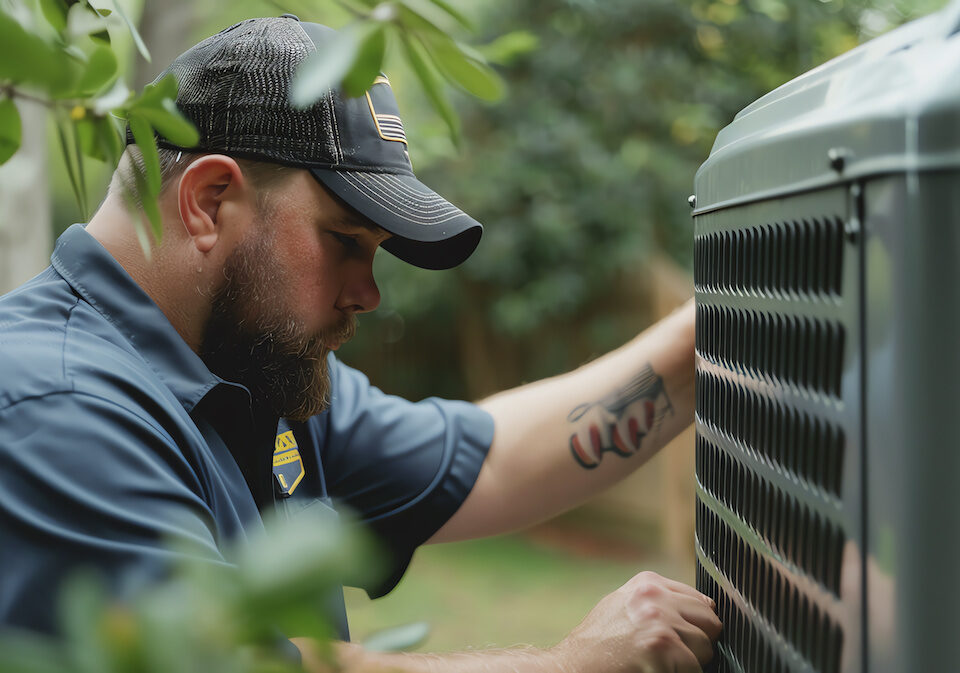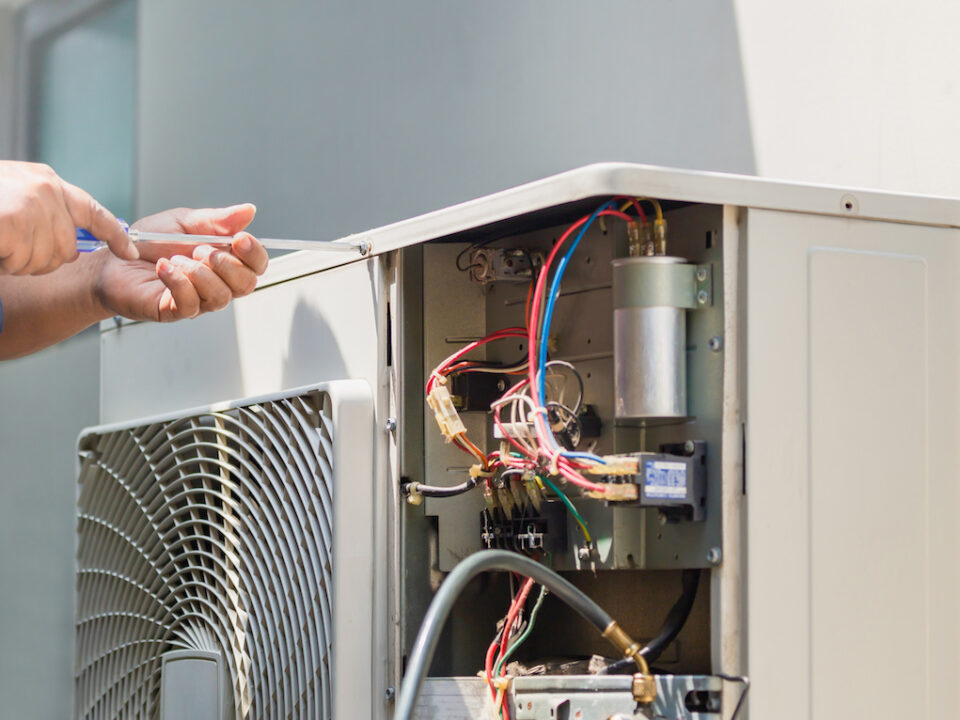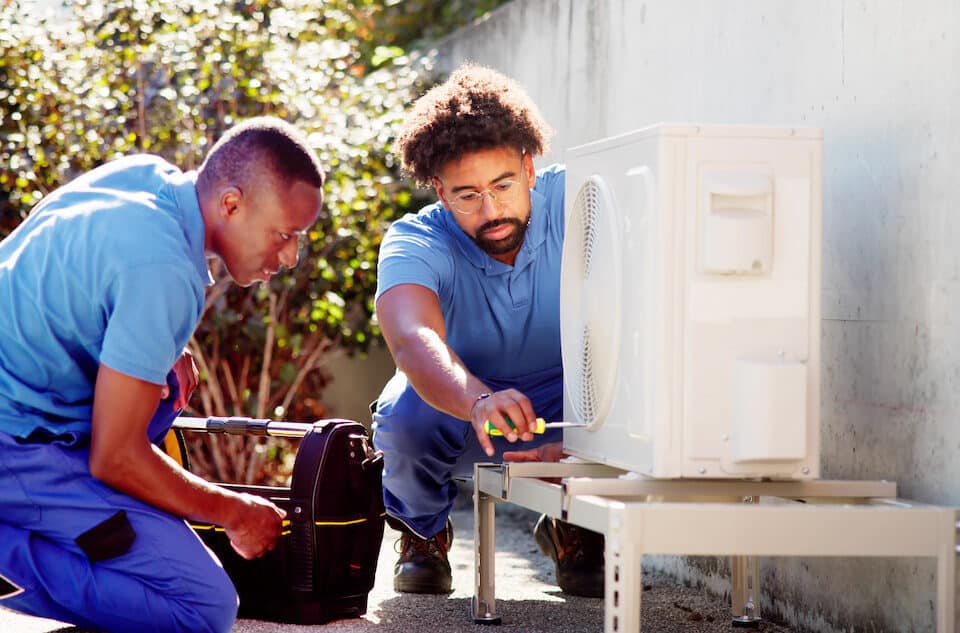How Technology is Improving HVAC Energy Efficiency
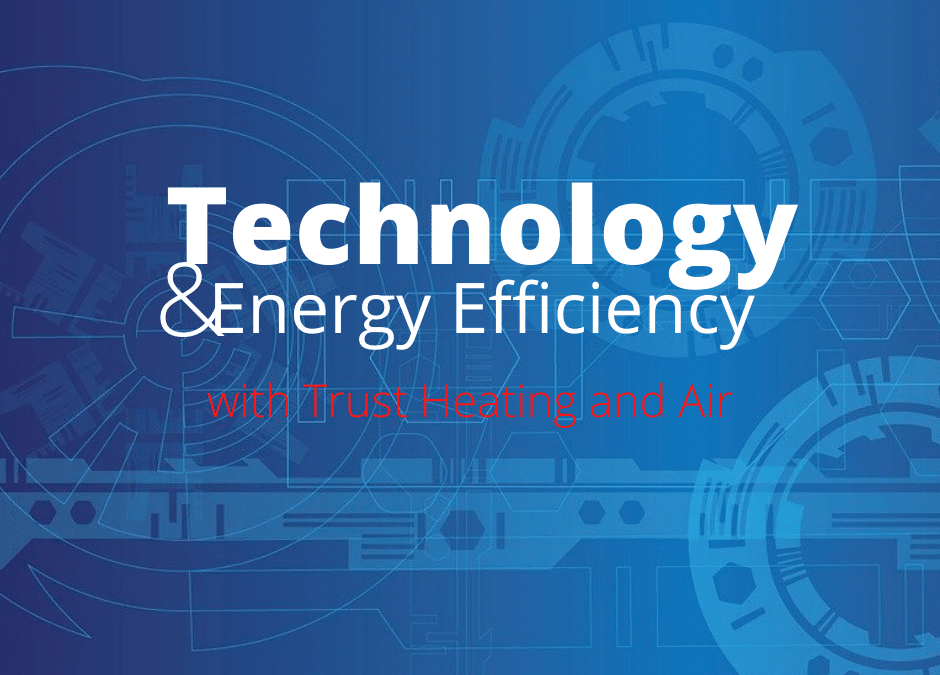
How Technology is Improving HVAC Energy Efficiency
When your energy bills are on a steady rise and the AC just cannot keep up, newer technology may be the answer. Raising the level of energy efficiency with your HVAC unit can make all the difference in AC air quality and your energy bill. Keep reading to learn how technology is improving HVAC energy efficiency.
According to the U.S. Department of Energy,
“Heating and cooling account for about half of a typical home’s energy usage, making high-performance HVAC systems critical to managing energy consumption and costs for individual homeowners as well as cumulatively across the nation.”
HVAC Energy Efficiency
Not only is energy efficiency good for your home energy bill, but it is good for the whole world’s energy usage. The more HVAC units that are using these technologies, the better off our planet will be.
An HVAC resource called HVAC.com had this to say about the impact on the planet.
“Higher energy efficiency ratings of heating and cooling equipment are working to lower impact on climate change. With more efficient utilization of heating and cooling fuel, less fuel is consumed. This lowers direct carbon emissions that impact climate change, as well as carbon emissions associated with the production of electricity and fossil fuels.”
By choosing an Energy-Star system, you can reduce your energy bill and your carbon impact on the planet. So, at Trust Heating and Air, we have gathered the following information on how technology is improving HVAC energy efficiency.
HVAC Technology Methods
The continual improvement to technology, on the whole, is making the plant a safer and time-efficient place to live. And with energy-efficient technology for HVAC units’ homeowners and businesses alike can save a lot of money on their energy bills with some simple adjustments to updated technology. Four control methods can cut back on your energy usage.
- Supply fan speed controls: The fan on your AC unit is controlled by this method. You see, when the fan is running, it will circulate the air to get it to the right temperature. This way, the fan is speeding up and slowing down as needed. By not continually running the fan at full speed and only running it when necessary, energy savings are significant.
- Air-side economizers: This technology pulls outside air into the building, and the exhaust is then released outside. These units are most effective in cooler climates since they utilize the outside air. And the air-side economizer can be fully integrated into your current HVAC system.
- Demand-controlled ventilation: Demand control is as it sounds. The DCV will adjust the outside air according to the number of occupants in the room. It does so based on the fluctuating carbon dioxide levels within the building instead of ventilation fans that are always running.
- Cooling capacity controls: With this technology, the HVAC compressor runs at different speeds, depending on its needs at that time. And it starts up with less amperage. Most often, this method is beneficial in large homes and commercial buildings.
You can learn more about each of these methods by calling your local HVAC Company for a usage evaluation.

HVAC Technology Automation
Being connected to your HVAC system doesn’t seem like it would be all that important until clients hear the benefits. Automation provides the following benefits and more:
- Lower energy bills and maintenance costs
- Improved indoor comfort
- Greater control
A smart home should include a smart HVAC unit. There are a few features that make these technologies in high demand.
- Smart Thermostats
- Mobile Control
- Voice Control
- Self-Diagnosis Capabilities
To learn more about these benefits and features, contact us with your questions, and we will be happy to answer.
HVAC Technology Accessories
There are several accessories you can add to your HVAC system to improve your home’s energy efficiency. Not only will these accessories reduce your energy bill, but they can even reduce the level of allergens in the air you breathe inside your home. That is good news for those suffering from allergies.
Some of the HVAC accessory options available include the following:
- Programmable thermostats
- Air filtration systems
- Furnace humidifiers
Programmable Thermostats
Using a programmable thermostat is an excellent idea with how busy our lives are today. We come and go, and yet the HVAC system stays working all the time. When you program the system to run when you are there and maintain a different temperature when you are not home or are sleeping, the cost savings are enormous. They can even adjust for the seasons.
Air Filtration Or Purification Systems
Removing pollen, dander, dust, bacteria, and more can benefit your overall health. By adding an air filtration system, you can reduce up to 95% of the floating particles that pass through your HVAC. However, when the particles land on the surfaces, they are not caught by the filtration. Types of Air Purifiers include:
- Mechanical Filters
- Activated Carbon Filters
- Ozone Generators
- Electronic Air Purifiers
- Ultraviolet Germicidal Irradiation
- Photocatalytic Oxidation
Furnace Humidifiers
Keeping your home at the recommended humidity level is imperative for your comfort. It prevents your skin from cracking due to overly dry air. Likewise, too much humidity increases the risk of illness.
Your house will remain at the desired temperature with humidified air, even when it is cold outside. How does it do that? The system is connected to your HVAC and forces moist air throughout the home. There are several types of furnace humidifiers; here are three.
- Flow-through humidifiers use freshwater flowing through the system.
- Reservoir systems have a rotating drum that utilizes water stored in a reservoir.
- Steam humidifiers heat water creating steam that is forced into the airflow.
To know which is right for your home, contact your local HVAC specialist.
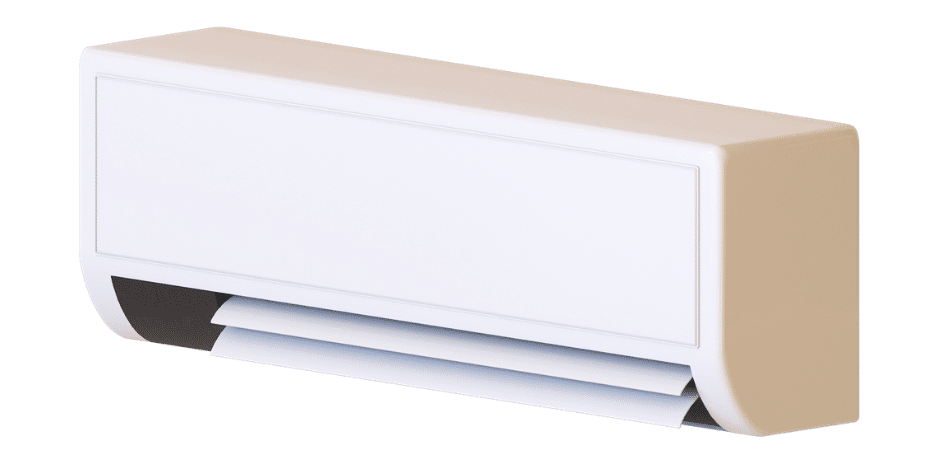
Is a High-Efficiency Air Conditioner a Good Investment?
The truth is, a high-efficiency air conditioner has significantly lower operating costs than its conventional counterparts. With the average air conditioner lasting 15 years or more, the monthly fee to run the machine should be considered. Be sure to include the entire lifespan of the system to calculate the actual value of the purchase and your ROI.
A high-efficiency air conditioner is a good investment for the following reasons:
- Lower Utility Bills: Since these systems cost less to run, they’ll give you lower utility bills throughout the lifetime of your system.
- Longer Operating Life: Conventional air conditioners have an average lifespan of 15 years, but high-efficiency models have shown to last beyond that. The longer the system survives, the more value it provides.
- Fewer Repairs Necessary: These models come with more advanced technology. That means they can run with less stress and wear and tear on the system compared to conventional models and fewer repairs.
- Better Comfort Levels in Your Home: These air conditioners are better at their job. You’ll be more comfortable in your home and happier with the performance of the system if you choose the high-efficiency models.
- And it lessens your impact on the planet.
Trust Heating and Air Installs the Latest Technology
With all the technology available today and the increasing technology of tomorrow, homeowners must consider every aspect of the system to determine its value. At Trust Heating and Air, we do our best to be on top of the technological changes and improvements to the HVAC industry. Our job is to make sure the latest and greatest is available to save you money, keep you comfortable, and improve your air quality.
And as always, be sure to keep your system well maintained to help all the technologies and moving parts of your HVAC working as they should.
If you feel this technology could improve your HVAC system, give us a call today for a free consultation.

